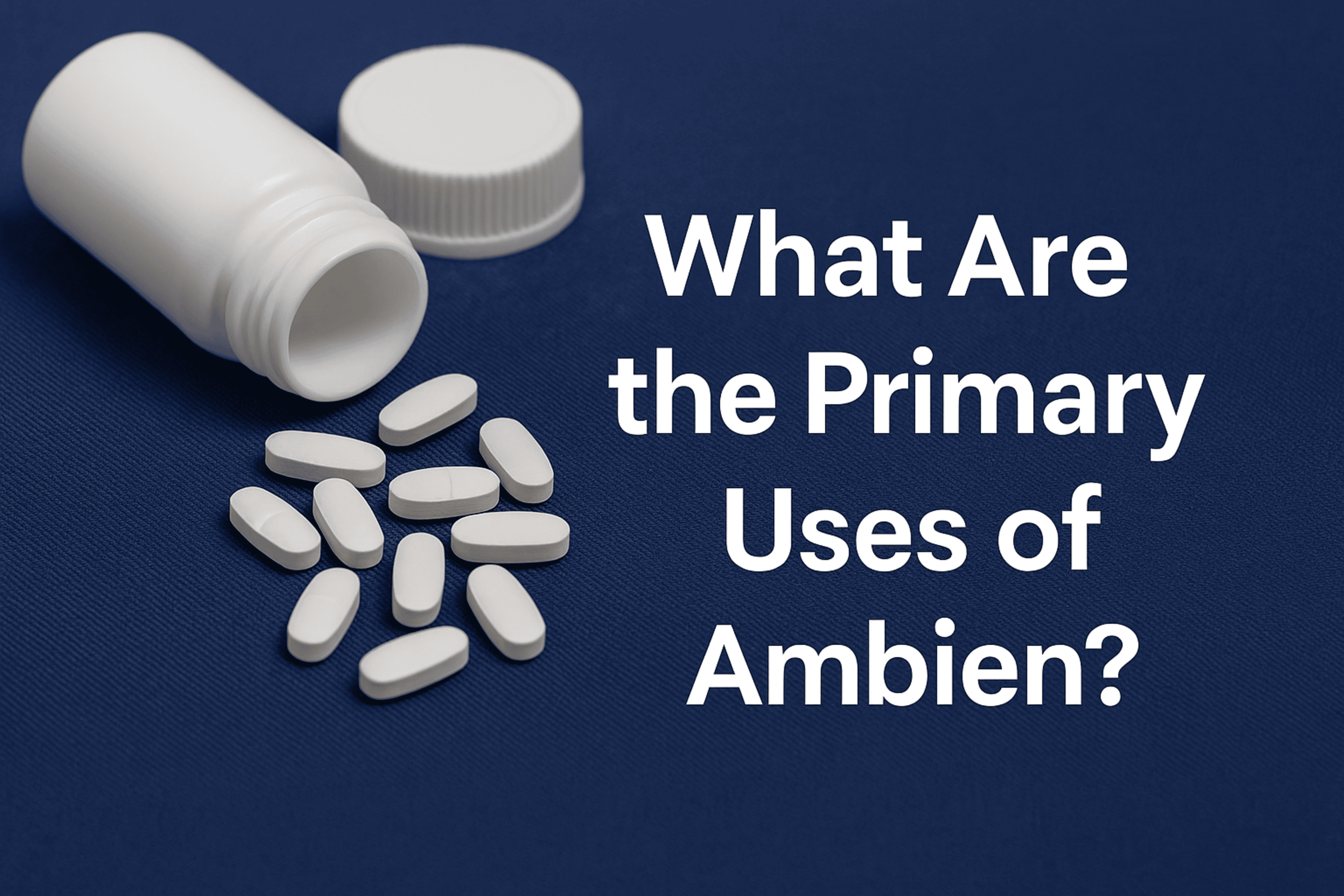Sleep is essential for our mental and physical well-being. But for millions struggling with insomnia, a good night’s rest feels just out of reach. That’s where Ambien comes in — a commonly prescribed medication designed to help you fall asleep faster and stay asleep longer.
But what exactly is Ambien used for? Let’s break it down.
 What Is Ambien?
What Is Ambien?
Ambien (generic name: zolpidem) is a prescription sedative-hypnotic medication. It works by slowing brain activity to help users relax and fall asleep. It’s FDA-approved and widely used to treat sleep disorders, particularly insomnia.
 Primary Uses of Ambien
Primary Uses of Ambien
1. Short-Term Treatment of Insomnia
The most common and FDA-approved use of Ambien is for short-term management of insomnia — specifically, difficulty falling asleep.
- It’s designed to work quickly (within 15–30 minutes).
- Best taken right before bed on an empty stomach.
- Users should be able to get 7–8 hours of sleep to avoid morning drowsiness.
2. Sleep-Onset Insomnia
Ambien is particularly effective for sleep-onset insomnia — when you struggle to fall asleep but stay asleep once you do.

3. Occasional Use During Stress or Travel
Doctors sometimes prescribe Ambien for situational insomnia, like:
- Jet lag,
- Temporary stress,
- Changing work schedules (like shift work),
- Occasional sleepless nights due to anxiety or lifestyle disruptions.
 What Ambien Is Not Meant For
What Ambien Is Not Meant For
- Not recommended for long-term nightly use
- Not intended for treating chronic sleep disorders without a full medical evaluation
- Not a cure for anxiety, depression, or pain (though these can affect sleep)
 Key Warnings & Precautions
Key Warnings & Precautions
While Ambien can be very helpful, it should be used with caution:
- Dependency Risk – Prolonged use can lead to tolerance and dependence.
- Complex Sleep Behaviors – In rare cases, users may sleepwalk, eat, or even drive with no memory of the event.
- Next-Day Drowsiness – Especially if not given enough time to sleep.
- Interactions – Avoid alcohol and other CNS depressants while on Ambien.
 How Long Should You Use Ambien?
How Long Should You Use Ambien?
Most doctors prescribe Ambien for 7 to 10 days to break the cycle of sleeplessness. If sleep problems persist, a deeper evaluation is needed to uncover underlying causes (like anxiety, depression, or sleep apnea).
 Final Thoughts
Final Thoughts
Ambien is a helpful tool in the short-term treatment of insomnia — especially when sleeplessness starts interfering with your life, work, or mental health. But like all medications, it’s best used under the guidance of a healthcare provider and as part of a broader strategy for healthy sleep.
If you’re struggling with chronic insomnia, consider combining medical support with:
- Better sleep hygiene
- Cognitive behavioral therapy for insomnia (CBT-I)
- Stress management techniques

 What Are the Primary Uses of Ambien?
What Are the Primary Uses of Ambien?

 Exercise and Weight Loss: What Really Works?
Exercise and Weight Loss: What Really Works? Why ‘Healthy’ Food Labels Fool Even Savvy Shoppers
Why ‘Healthy’ Food Labels Fool Even Savvy Shoppers
3 Comments
You’ve changed the way I think about this topic. I appreciate your unique perspective.
I’m so happy you enjoyed it! I always aim to simplify complex topics.
This article is exactly what I needed! Your insights are incredibly helpful.